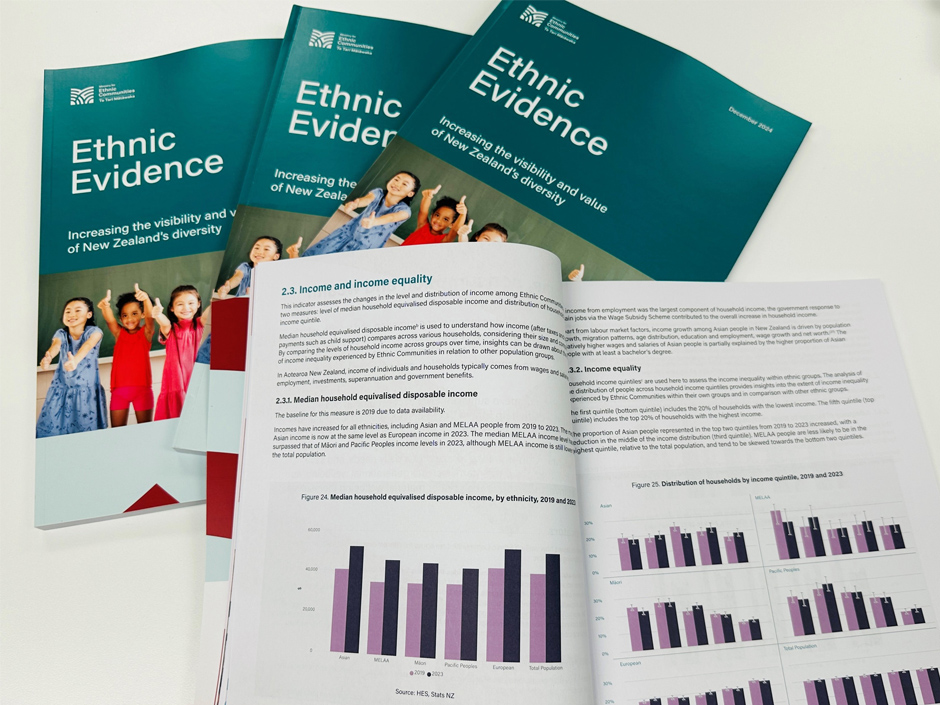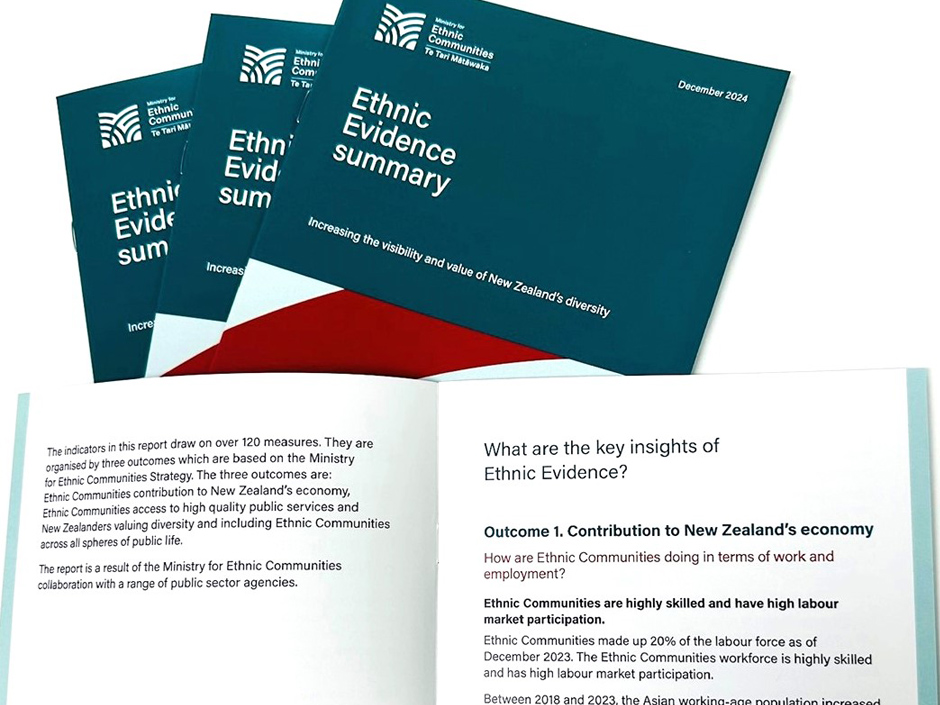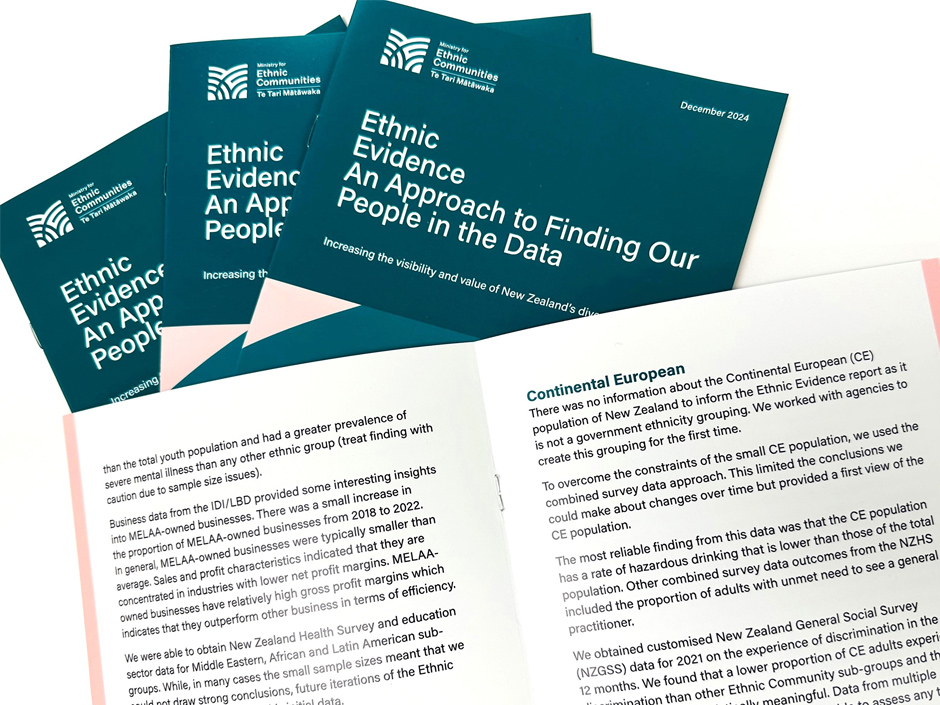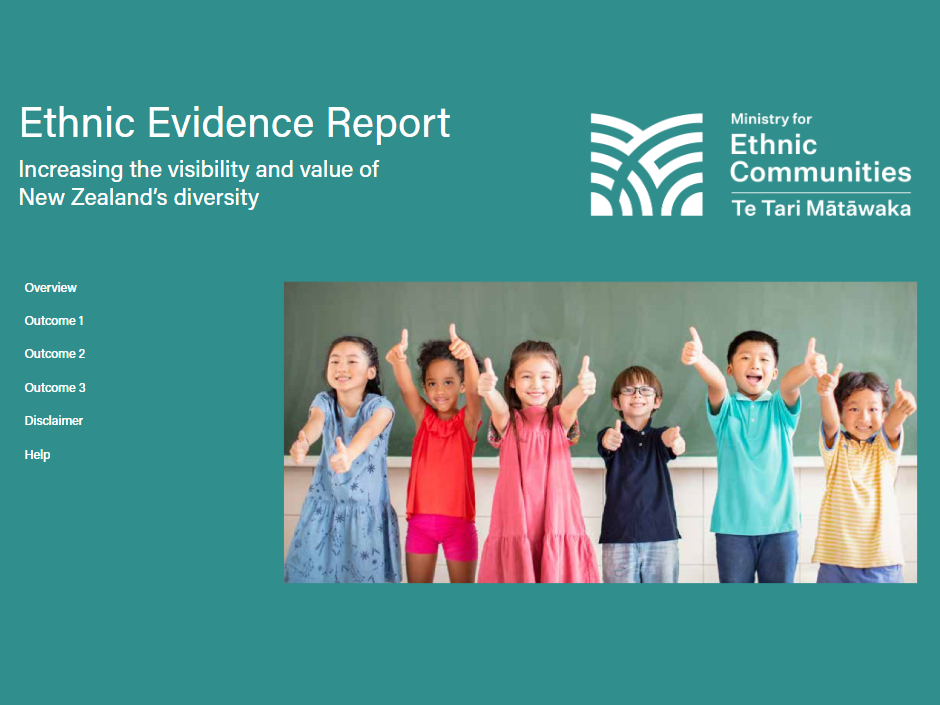
Ethnic Evidence Increasing the visibility and value of New Zealand's diversity
Ethnic Evidence report brings together in one place evidence on how Ethnic Communities are doing in New Zealand. This report is designed to help the public sector consider Ethnic Communities for government investment, policy development and service delivery intervention.
The report covers the following areas:
- Work and employment
- Income, consumption and wealth
- Business development
- Health and wellbeing
- Knowledge, education and skills
- Housing
- Diversity and inclusion
- Connectedness and belonging
- Engagement and voice
- Justice and safety
The indicators in this report draw on over 120 measures. They are organised by three outcomes which are based on the Ministry for Ethnic Communities Strategy. The three outcomes are: Ethnic Communities contribution to New Zealand’s economy, Ethnic Communities access to high quality public services and New Zealanders valuing diversity and including Ethnic Communities across all spheres of public life.
The report is a result of the Ministry for Ethnic Communities collaboration with a range of public sector agencies.


An approach to finding our people in the data
The Ethnic Evidence report is our first major attempt to develop baseline indicators for Ethnic Communities. The current public service data systems capture Ethnic Communities statistics in a way that makes many of our people invisible. We had to deal with and overcome this challenge, and this paper sets out how we did it.

Evidence behind the report
The statistics used for all of the figures in ethnic evidence can been found here.
